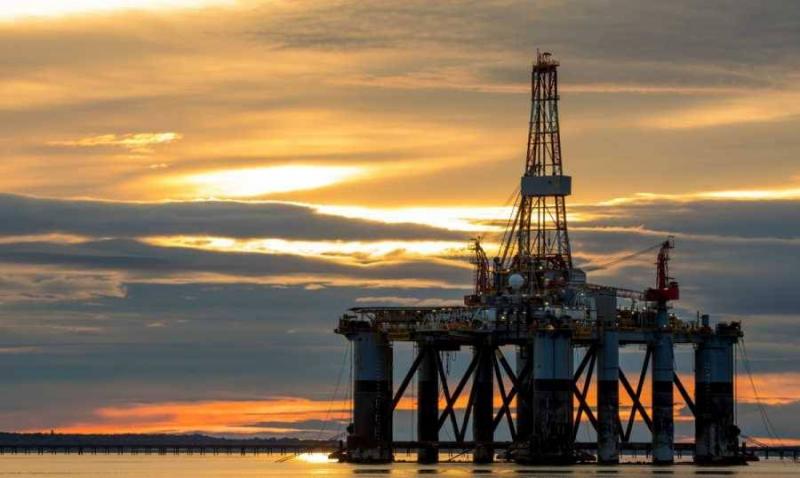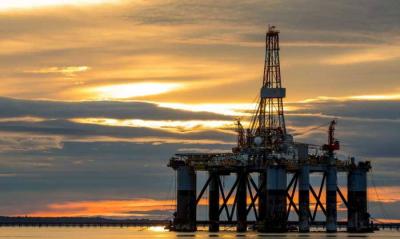It is natural for conspiracy theories to emerge regarding the gas exploration file, especially after it became evident that the French, Italians, and Qataris found no gas in the well they drilled in Block 9. Lebanese people were previously shocked to discover that there was no gas in Block 4. Are we really facing a conspiracy preventing Lebanon from extracting its offshore resources?
Before delving into the conspiracy theory, it is necessary to clarify some technical matters and proven facts based on the experiences accumulated in the world of oil and gas exploration and extraction, as reported by "Al-Jumhuriya" newspaper.
First, the absence of gas in the reservoir chosen by the drilling company does not mean that there is no gas in the entire block. There remains a possibility that there may be no gas in the block as a whole until proven otherwise.
Second, all advanced surveys, which have developed over time, have not improved the likelihood of discovering oil in areas classified by surveys as containing this resource, to more than one in four (1/4), meaning that, for every four wells drilled, oil is found in only one. Such experiences are evident in all countries searching for oil resources, with Cyprus being a nearby example where drilling in promising areas based on survey results led to disappointments when it was discovered that there was no gas or oil.
Third, drilling activities in Lebanon are still within the recognized average, as only two wells have been drilled so far, leaving ample room for possibilities before reaching a stage of despair and resignation.
As for the conspiracy theory, it is unlikely, although providing irrefutable evidence to prove this is impossible, just as proving the existence of a conspiracy is also not feasible with proof. However, people, particularly in these exceptional circumstances, tend to believe in conspiracy theories, perhaps because they prefer to accept this narrative over acknowledging disappointment.
The facts that allow for the exclusion of conspiracy theories, although they may not convince many, are as follows:
First, global companies, including Total, Eni, and Qatar Energy, cannot be tools in conspiracies, regardless of the conspirators involved, and agree to incur financial and moral losses solely to serve the conspirators.
Second, the efforts made to finalize maritime delineation cannot be regarded as trivial; rather, they aim to facilitate the task of gas exploration and extraction.
Third, five countries were pressing to expedite drilling and exploration operations: France, Italy, Lebanon, Qatar, and Israel (due to its share of the promised gas in the border blocks).
Fourth, drilling in Blocks 4 and 9 was conducted with the presence of Lebanese companies, and engineers and technicians participated in the work, albeit indirectly. Thus, they understand the technical aspects and would be aware of any manipulation in the drilling operations, how they are conducted, and when they should be stopped.
Of course, all this information can be rebutted by proponents of the conspiracy theory, who could argue that all of this constituted "performances" in which these countries and individuals played their required roles, and that everything that transpired is a meticulously crafted scenario to convince people that matters are proceeding normally, and that the lack of gas is merely a matter of bad luck.
In any case, the most important question for Lebanese people today may be whether the dream has ended, and whether gas exploration operations will cease in the upcoming phase.
The scientific answer, according to "Al-Jumhuriya" newspaper, is that the possibilities of finding gas still exist, at the same percentages that were present before drilling the wells in Blocks 4 and 9. However, will the companies agree to drill more wells and risk additional losses if gas is not found?
In Cyprus, for example, Eni planned to drill four wells in search of gas. When it drilled two and did not find gas, it decided to stop and not continue drilling the other two. These are evaluative decisions made by companies based on their calculations and economic interests.
In Lebanon, it is currently impossible to predict what Total, Eni, and Qatar Energy will decide. It is also unknown if it would be possible to invite additional bids for the remaining blocks, hoping to involve new companies outside of this trio's current alliance. However, some believe that Qatar Energy may be more capable than Total and Eni in taking the initiative to finance new drilling operations.
Returning to the conspiracy theory, it can be said that the certain "conspiracy" is related to the Lebanese authorities that have led the country to complete collapse, rendering it unable to self-finance any future drilling operations, nor able to replicate any successful experiences, like the Norwegian model that adopted the establishment of an investment fund to finance drilling operations after the state failed to secure funding from global banks. Yet, Lebanon in its current state is incapable of self-financing and unable to create funds because it will not find any investor willing to gamble with a "state" that is unworthy of trust.




